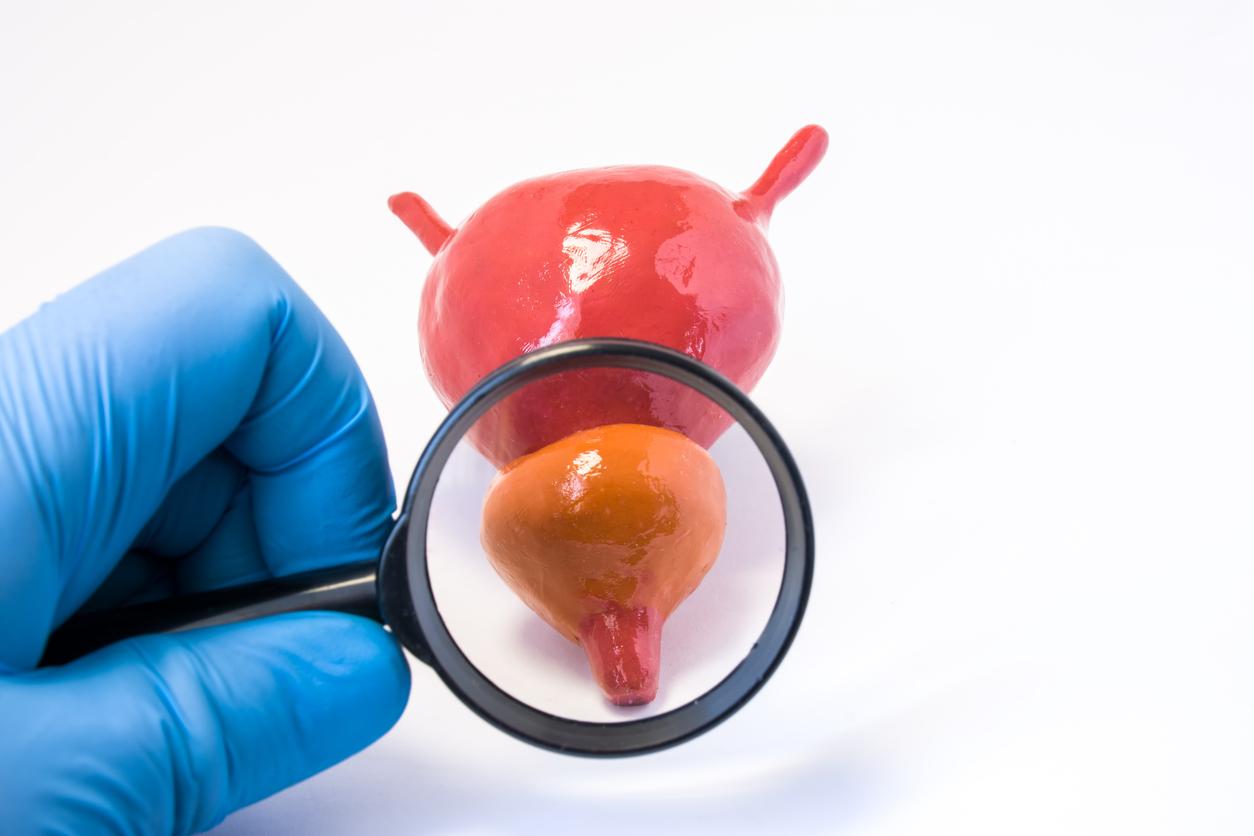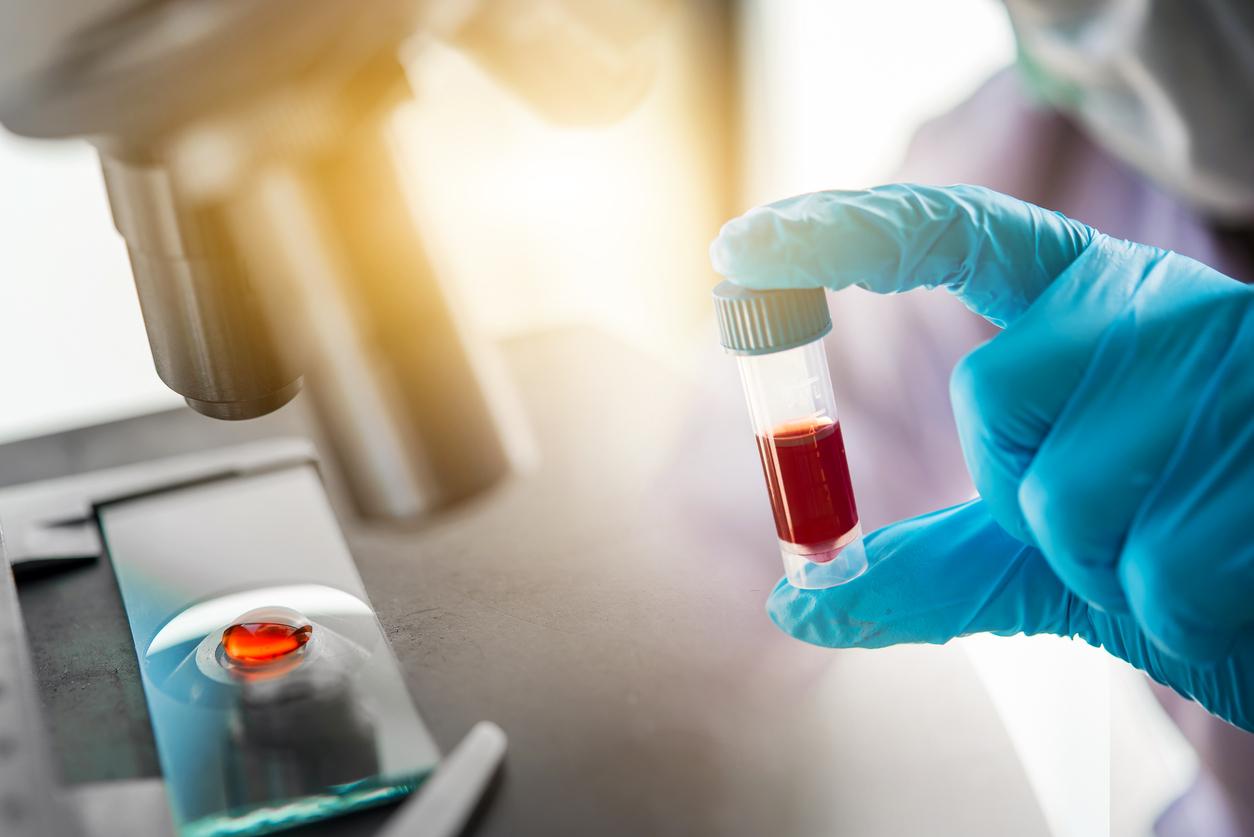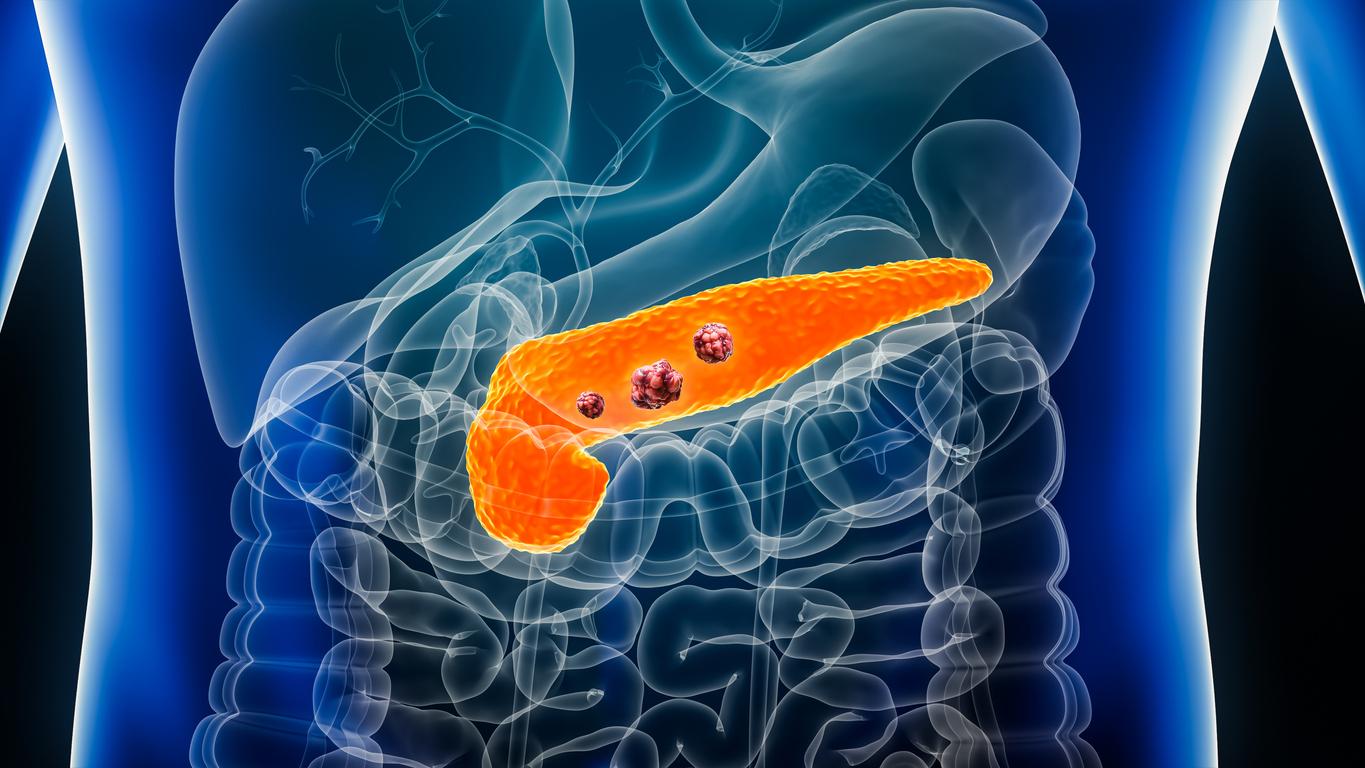A blood test can detect pancreatic cancers at an early stage with 97% accuracy.

- Researchers have developed a new blood test that can detect pancreatic cancers at an early stage.
- Its effectiveness is estimated at 97%.
- It is looking for 8 microRNAs excreted by pancreatic tumors and five DNA markers present in the blood of patients with pancreatic cancer.
“Pancreatic cancer is one of the deadliest malignancies, largely because the majority of patients are not diagnosed until after the cancer has already metastasized“, explains lead researcher Ajay Goel of City of Hope Cancer Center in a Press release. However, his team’s work offers new hope. Scientists have developed a blood test that can detect pancreatic cancers at an early stage with an accuracy of 97%.
Pancreatic cancer: a blood test that detects early stages
The blood test, developed by the researchers, looks for 8 microRNAs excreted by pancreatic tumors and five DNA markers present in the blood of patients with pancreatic cancer. The team brought together 523 people with pancreatic cancer and 461 healthy donors from the USA, Japan, South Korea and China to test this tool. The results of the study show that it managed to detect 93% of pancreatic cancers in the American cohort, 91% in the South Korean and 88% in the Chinese.
After these promising results, the scientists had the idea of coupling their test with the CA19-9 marker, an antigen produced mainly by pancreatic cancer cells and already used to diagnose the disease.
With this additional element, the accuracy of the new blood test increased to 97% for stage 1 and 2 pancreatic cancers.

Pancreatic cancer: a useful blood test for people at risk
For scientists who presented their work at the American Association for Cancer Research annual meeting April 8their discovery is a real advance in the diagnosis of pancreatic cancer, but also its management. “The results are exciting because pancreatic cancer diagnosed after it has spread significantly is devastating, with a low survival rate. But if we catch it early, there’s a better chance we can surgically remove it and treat it further “explains researcher Ajay Goel.
Although more research is needed before this test can be rolled out to the public, researchers say it could benefit people at high risk of pancreatic cancer, such as those with chronic pancreatitis, diabetes, or those with a family history of pancreatic cancer.















